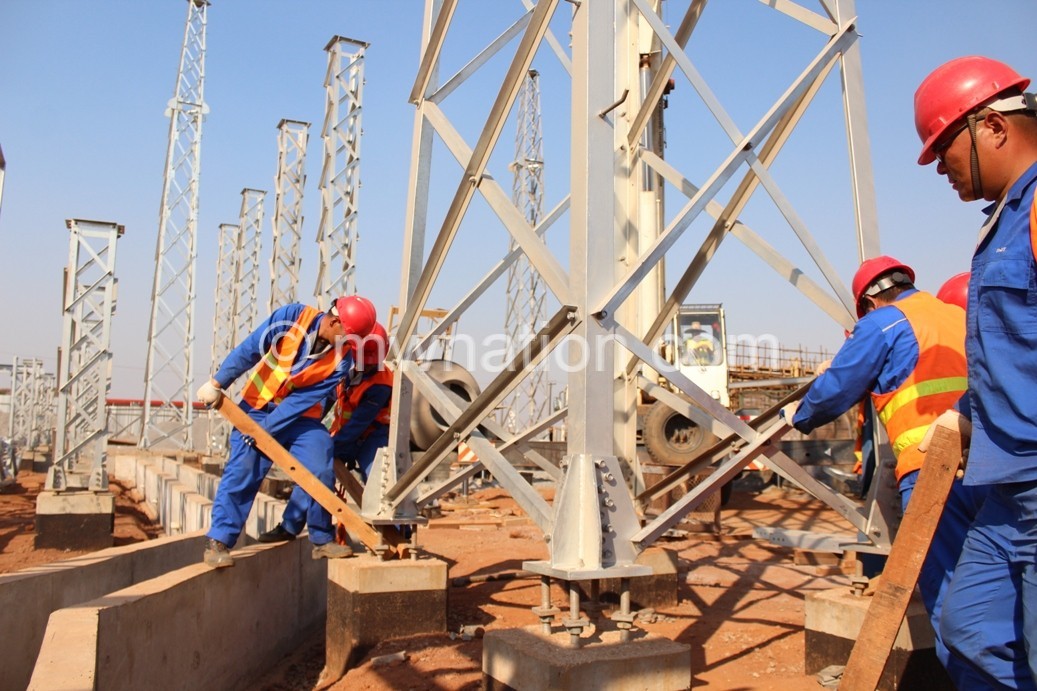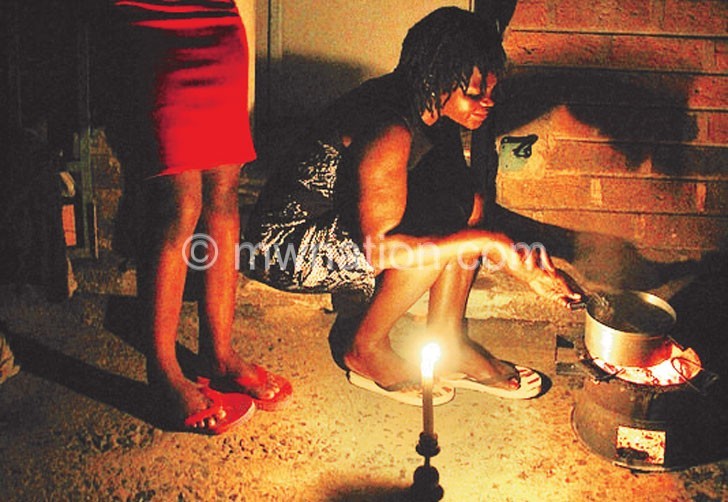Escom messes up gensets deal
Electricity Supply Corporation of Malawi (Escom), the distributor of electricity, has messed up the procurement of generators that were expected to add 78 megawatts (MW) to the national grid to minimise the intensity of current blackouts, The Nation has learnt.
All things being equal, the heavy-duty generators were scheduled to start running from this month.

However, to date, no single generator has been procured due to what the Office of the Director of Public Procurement (ODPP) says was Escom’s poor handling of the process.
ODPP even had to tell government in August 2017 to cancel the process after its investigations found that some decisions and actions in the procurement process were “wrongly made”, according to information made available to The Nation.
The botched transaction has not only just affected electricity users, but also failed to meet one of President Peter Mutharika’s key objectives of his electricity agenda.
In November 2016, Mutharika, as part of short-term intervention measures into the power supply crisis, told the nation that Escom would acquire diesel-operated generators on lease basis for an initial estimated period of 18 months.
In the initial procurement process, nine companies, including JocobsenElekro AS, Aggreko, AKSA Enerji Rental Power, APR Energy, Almagamated Power Solution (APS), Altaaq Global CAT, So Energy International, Greenheart Energy Limited and Sino Hydro were shortlisted for supply of three generators that were to be stationed in three lots each at Mapanga in Blantyre, Kanengo in Lilongwe and Chinyama in Kasungu.
Information we have seen shows that in December 2016 Escom evaluation committee recommended that lots one and two in Mapanga and Kanengo, respectively, be awarded to APR Energy with evaluated respective prices of $34.6 million and $24.9 million while lot three at Chinyama in Kasungu was recommended for award to Aggreko International Projects for $18.9 million.
But when the bids’ evaluation team presented its report to the internal procurement committee (IPC) for approval, the evaluation recommendations were not upheld.
Instead, information we have seen shows, IPC at its 9th extraordinary meeting of 23rd January 2017 resolved that due to the complexity of the tender, bidders should be invited to make presentations of their bids, including pricing.
But in the letter to ODPP for ‘no objection’ Escom explains that after the bid presentations, the evaluation committee awarded all the three lots to Aggreko International Projects.
That decision prompted two companies—Altaaq Global CAT and AKSA—to complain to Escom that the awarded company presented the wrong bid during the presentation of bids and that Escom changed the scope of the bid from three lots to two lots.
Based on the complaint, according to a source, ODPP opened an investigation to assess the procurement process to determine if the evaluation was conducted in line with the provisions of the Public Procurement Act, assess the merit of the complaints presented by AKSA Energy and Altaaq Global CAT and to determine whether the proposed change in scope was allowable.
In its findings, the ODPP faulted the evaluation process, saying it was not property concluded.
ODPP found that after the evaluation that recommended lots I and 2 to APR Energy and lot 3 to Aggreko International Projects, another evaluation was undertaken that awarded all the three contracts to Aggreko International Projects being the lowest bidder after the presentation, according to investigations.
On the second evaluation Aggreko International Projects became the lowest bidder, bidding lot 1 at $32.3 million, lot 2 at $24.2 million and lot 3 at $I7.4 million which were different figures from the initial evaluation of lot 1 which was valued at $35.2 million, lot 2 at $26.2 million and lot 3 at 18.9 million, said the report.
While the evaluation team recommended that the lots be awarded to different bidders to spread the risk of failure after noting that Aggreko was the lowest evaluated bidder in all three lots, the Escom IPC rejected the recommendation. The IPC argued that the bidding document did not have such a provision.
Further, it was also observed that Escom changed the original three sites to two with varied output levels although maintaining the overall output level.
In one letter dated August 28 2017, Director of Public Procurement Paul Taulo observed that the procurement process met various problems from the operations part of Escom and doubted whether the country would realise the intended benefit by October 2017.
It was on this basis that Taulo advised Capital Hill to cancel the process and restart.
In a telephone interview, Taulo said the process was stopped and Electricity Generation Company (Egenco) took over the task of procuring the three generators that were supposed to be operational this month.
Malawi currently is experiencing extended hours of blackouts that have seen some areas going between 15 to18 hours without electricity.
Last week, Egenco chief executive officer William Liabunya told The Nation that generation capacity will be negatively affected until water levels in Lake Malawi and its sole outlet, Shire River, home to over 90 percent of Egenco’s hydro-electric power stations, improved.
Escom public relations manager Kitty Chingota earlier referred The Nation to Egenco, saying anything to do with generation of electricity was the responsibility of the new generation company.





